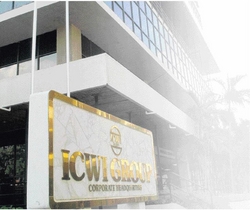
Avia Collinder, Business Reporter
In the absence of an effective government response to what is believed to be the large and growing number of uninsured motor vehicles operating on Jamaica's roads, one insurance company is offering compliant drivers an insurance top-up for a fee of up to $4,000 more per year.
The new rider from the Insurance Company of the West Indies (ICWI) provides policyholders with additional coverage in the event of collisions with uninsured motorists.
"If you are insured currently with ICWI and someone without insurance hits you and you claim with ICWI, you will pay the deductible (charge), which is five per cent and lose your no-claim benefits, which can be up to 60 per cent of the annual charge," says Samantha Samuda, the company's assistant vice-president of marketing and distribution.
In such circumstances, the policyholder will also be required to pay an excess charge and full insurance costs at a higher rate in the years following the claim until no-claim benefits again accrue over time.
"It will cost you a lot of money for something which was not your fault," the company executive said, pointing out that with the purchase of the uninsured motorist insurance top-up, all applicable costs would be paid by the insurer without the usual penalties to the policyholder.
The company said its women-only Road Angels policy already includes uninsured driving coverage for damage to the policyholder's vehicle and for personal injury where the uninsured driver is at fault.
Depending on the value of their vehicles, other policyholders will have between $2,000 and $4,000 tacked on to their annual insurance costs to avoid the penalties associated with uninsured driving by other motorists, if they opt for the added coverage.
But Paul Davis, head of the fraud unit of the Insurance Association of Jamaica (IAJ), says that not all motor-insurance companies penalise policyholders with the 100 per cent loss of no-claim benefits and other costs when accidents occur.
Policy provisions vary from company to company, he said.
An official with insurance and financial services watchdog, the Financial Services Commission (FSC), supports the IAJ statement.
Comprehensive policy
"Any decision that the company takes has to do with what is in your policy, which is the contract between you and the insurance company," the FSC official who requested anonymity told Sunday Business.
"If the policy is a compre-hensive one, normally loss of no-claim benefits occurs where the insurance company has to pay, whether one is at fault or not. No-claim indicates that you have not used up your financial resources. When a claim is made, the insured loses this status."
Industry trends indicating that a significant number of motorists are not renewing their motor policies for reasons many link to worsening financial constraints, ICWI said, led to the decision to offer more protection to compliant motorists.
The insurance association estimates that more than 30 per cent of all vehicles on the roads are uninsured.
"The estimate we use is that somewhere around one-third of vehicles are uninsured. We extrapolate from that and say one-third of accidents involve cars with no insurance."
Added IAJ executive director Orville Johnson: "If more people would pay their premiums, the overall cost of insurance would be less. One-third is missing from the insurance pool, and so costs are higher. Note as well that motor-vehicle parts are imported and costs go higher each year with the depreciation of the dollar."
Other remedies
Insurance expert Cedric Stephens adds that uninsured motorists pose problems in many countries and that in other jurisdictions remedies range from government programmes to insurance products offered by companies.
"Although it is illegal to operate a motor vehicle without insurance, it happens quite frequently in Jamaica," says Stephens, who writes a regular insurance advisory column for Sunday Business.
In parts of the United States and in Canadian provinces, consumers can also buy insurance against uninsured drivers.
In the United Kingdom, Stephens said, victims of negligent, untraced or uninsured motorists get compensation from the 60-year-old Motor Insurers' Bureau, funded by all motor-insurance companies.
IAJ's Johnson is pressing for greater vigilance on the part of the state to reduce the incidence of uninsured driving to lower motor-insurance costs across the board.
"What needs to happen is that the law needs to police better those persons on the road without insurance. They are getting away," Johnson said.
avia.collinder@gleanerjm.com